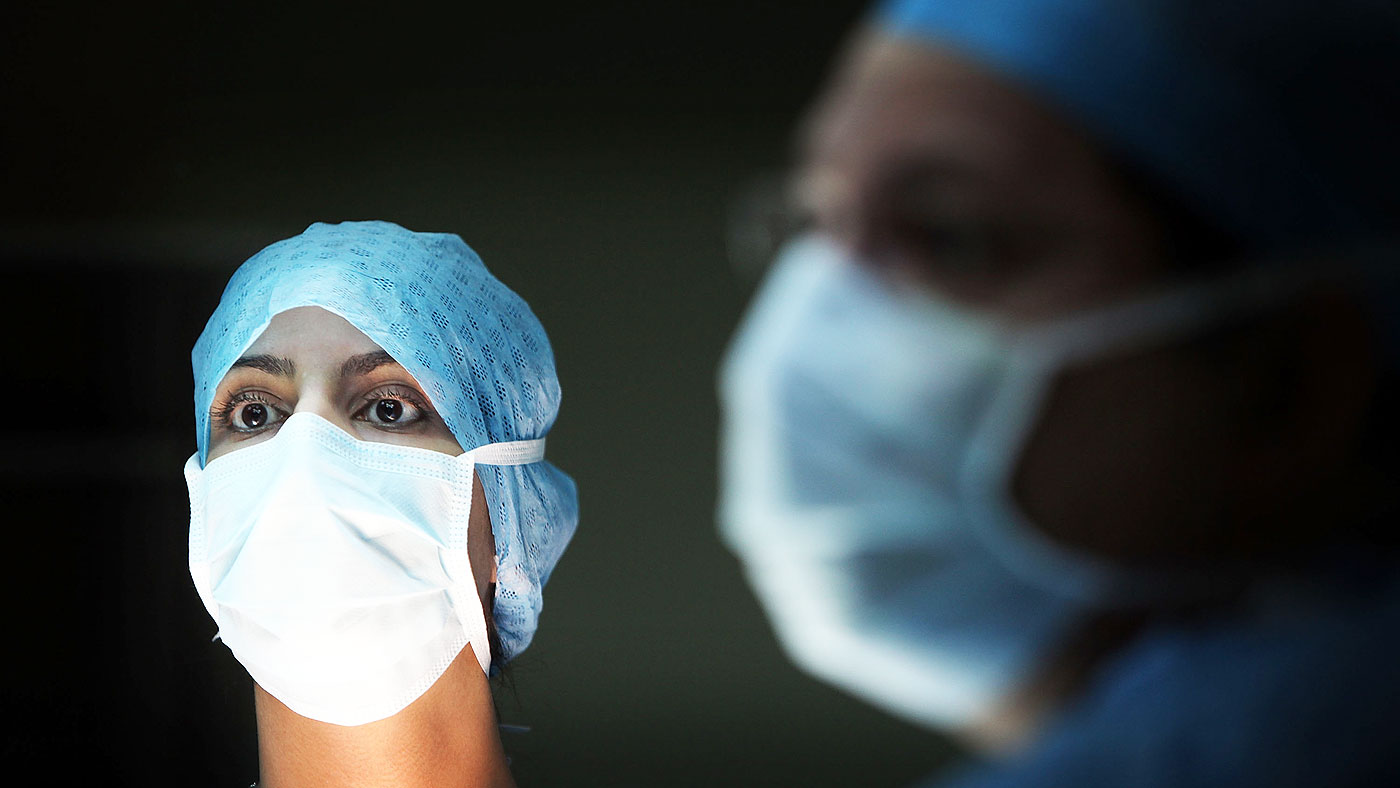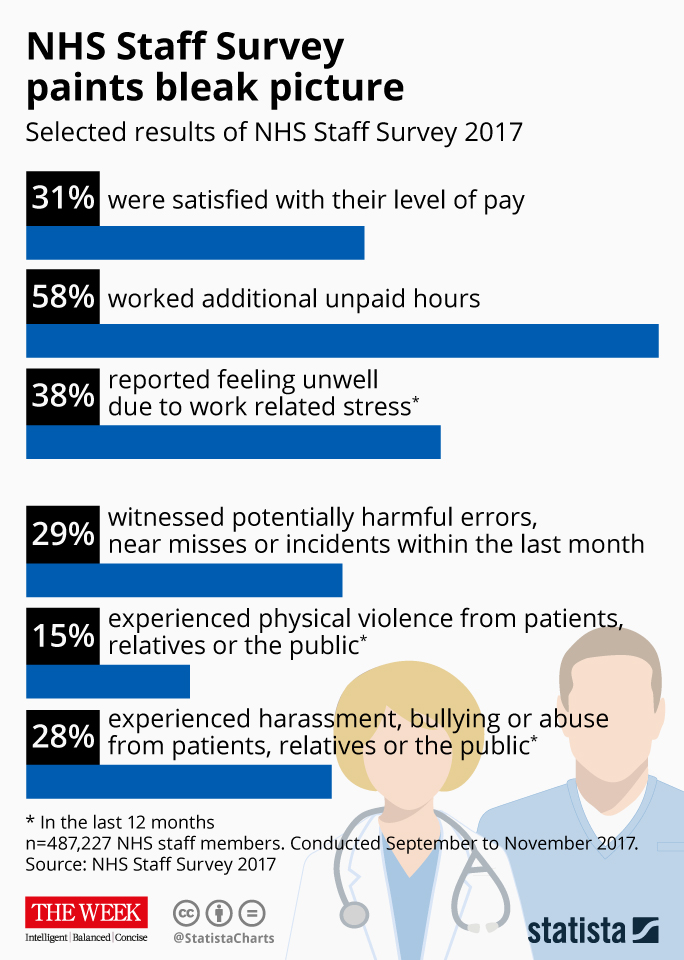Nearly 40% of NHS staff sick with stress, survey finds
One in three workers has witnessed ‘potentially harmful errors’ as pressure takes its toll

A free daily email with the biggest news stories of the day – and the best features from TheWeek.com
You are now subscribed
Your newsletter sign-up was successful
The number of NHS staff suffering work-related stress is on the rise, with 38.4% feeling physically unwell as a result over the past year, compared with 36.7% in 2016, new figures show.
And the pressure appears to be taking its toll, with almost a third of staff (29%) reporting having witnessed “potentially harmful errors, near misses or incidents within the last month”, according to NHS England’s latest annual staff survey.
The survey was sent to a total of 1.1 million NHS England employees, of whom 487,227 responsed. The resulting report, published today, is the largest workforce survey in the world.
The Week
Escape your echo chamber. Get the facts behind the news, plus analysis from multiple perspectives.

Sign up for The Week's Free Newsletters
From our morning news briefing to a weekly Good News Newsletter, get the best of The Week delivered directly to your inbox.
From our morning news briefing to a weekly Good News Newsletter, get the best of The Week delivered directly to your inbox.
The 2017 survey also found that 52.9% of staff had gone into work despite feeling unwell over the last three months, because they felt under pressure either from their manager, colleagues or themselves.
Just over 15% of staff say they experienced physical violence from patients, relatives or the public over the past year, and 28% experienced harassment, bullying or abuse.

Less than a third of all NHS workers say they were satisfied with their salaries last year, while more than 58% say they worked additional unpaid hours.
Responding to the survey results, Labour’s shadow health minister, Justin Madders, said: “The NHS Staff Survey shows yet again the extent to which this government has taken NHS staff for granted.
A free daily email with the biggest news stories of the day – and the best features from TheWeek.com
“Ministers need to do much more to give the brilliant staff of the NHS the support and respect they deserve. The chronic understaffing of our overstretched NHS is putting patients and their families at risk and needs urgent action from government.”
Infographic by www.statista.com for TheWeek.co.uk
-
 The ‘ravenous’ demand for Cornish minerals
The ‘ravenous’ demand for Cornish mineralsUnder the Radar Growing need for critical minerals to power tech has intensified ‘appetite’ for lithium, which could be a ‘huge boon’ for local economy
-
 Why are election experts taking Trump’s midterm threats seriously?
Why are election experts taking Trump’s midterm threats seriously?IN THE SPOTLIGHT As the president muses about polling place deployments and a centralized electoral system aimed at one-party control, lawmakers are taking this administration at its word
-
 ‘Restaurateurs have become millionaires’
‘Restaurateurs have become millionaires’Instant Opinion Opinion, comment and editorials of the day
-
 A real head scratcher: how scabies returned to the UK
A real head scratcher: how scabies returned to the UKThe Explainer The ‘Victorian-era’ condition is on the rise in the UK, and experts aren’t sure why
-
 How dangerous is the ‘K’ strain super-flu?
How dangerous is the ‘K’ strain super-flu?The Explainer Surge in cases of new variant H3N2 flu in UK and around the world
-
 The ‘menopause gold rush’
The ‘menopause gold rush’Under the Radar Women vulnerable to misinformation and marketing of ‘unregulated’ products
-
 How the care industry came to rely on migrant workers
How the care industry came to rely on migrant workersThe Explainer Government crackdown on recruiting workers abroad risks deepening care sector crisis, industry leaders warn
-
 Could medics' misgivings spell the end of the assisted dying bill?
Could medics' misgivings spell the end of the assisted dying bill?Today's Big Question The Royal College of Psychiatrists has identified 'serious concerns' with the landmark bill – and MPs are taking notice
-
 Washwood Heath: Birmingham's pioneering neighbourhood health service
Washwood Heath: Birmingham's pioneering neighbourhood health serviceIn the Spotlight NHS England chair says there is a 'really good argument this is the model for the future'
-
 The UK's first legal drug consumption room
The UK's first legal drug consumption roomThe Explainer 'Potentially transformative moment in UK drugs policy' as The Thistle opens in Glasgow
-
 How can the UK solve the adult social care crisis?
How can the UK solve the adult social care crisis?Today's Big Question New commission announced to turn our buckling care sector around: yet more delay or finally a way forward?